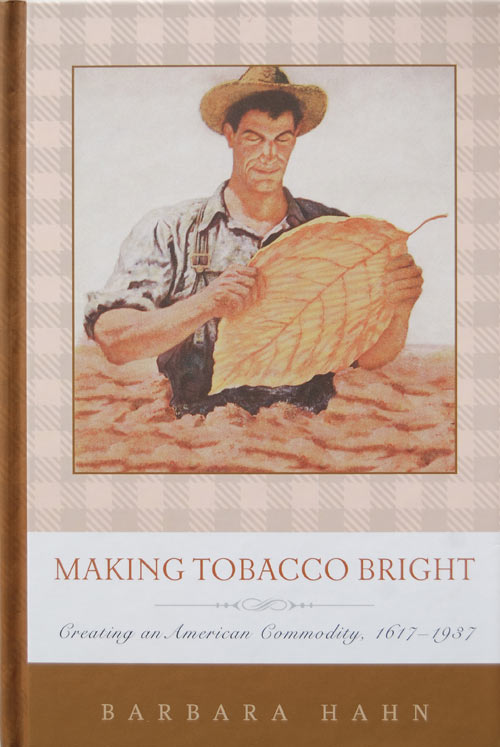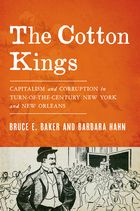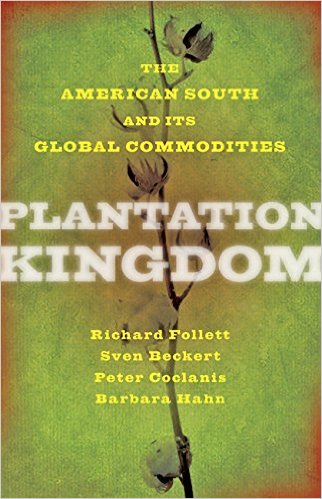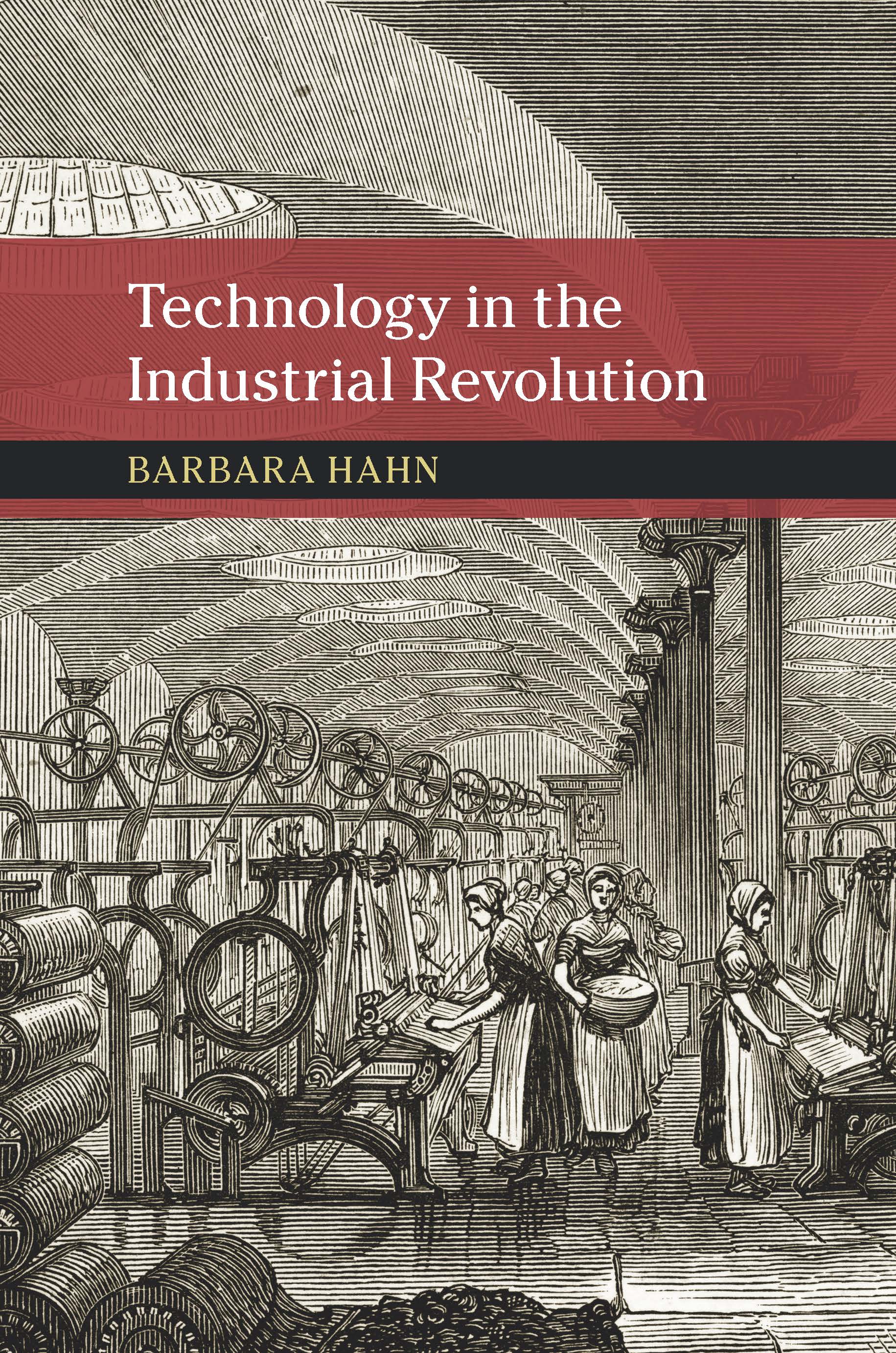Barbara Hahn
Email: Barbara.Hahn@ttu.edu
Office: 408 Humanities
Ph.D., University of North Carolina at Chapel Hill
Dr. Hahn studies and teaches southern history and global history, agriculture, the history of capitalism and the history of technology. Her first book, Making Tobacco Bright: Creating an American Commodity, 1617-1937 (Johns Hopkins University Press, 2011) examined the relationship between the tobacco industry and tobacco agriculture over three centuries. The Cotton Kings: Capitalism and Corruption in Turn-of-the-Century New York and New Orleans (with Bruce E. Baker, Newcastle University) was published in 2016 by Oxford University Press. This book investigates cotton futures trading and the regulation of new financial derivatives in the Progressive Era. She recently completed Technology in the Industrial Revolution (Cambridge University Press, 2020), which is short and intended for the undergraduate classroom.
Her research has been supported by the Harvard Business School, the Business History Conference and the Economic History Association, the National Humanities Center, The International Congress for the History of Science, Technology, and Medicine, and a Marie Curie International Incoming Fellowship to the European Union, among others.
In addition, Dr. Hahn is a member of Moving Crops and the Scales of History, a scholarly project funded by and located at the Max Planck Institute for the History of Science in Berlin. This project uses historical agricultural cases to re-write global history, undermining teleological assumptions about the movement from local to global, from small farms to large, from the pre-modern to modern. Learn more at:

Select Publications
Making Tobacco Bright: Creating an American Commodity, 1617-1937
 In her sweeping history of the American tobacco industry, Barbara Hahn traces the
emergence of the tobacco plant's many varietal types, arguing that they are products
not of nature but of economic relations and continued and intense market regulation.
In her sweeping history of the American tobacco industry, Barbara Hahn traces the
emergence of the tobacco plant's many varietal types, arguing that they are products
not of nature but of economic relations and continued and intense market regulation.
Hahn focuses her study on the most popular of these varieties, Bright Flue-Cured Tobacco.
First grown in the inland Piedmont along the Virginia–North Carolina border, Bright
Tobacco now grows all over the world, primarily because of its unique—and easily replicated—cultivation
and curing methods. Hahn traces the evolution of technologies in a variety of regulatory
and cultural environments to reconstruct how Bright Tobacco became, and remains to
this day, a leading commodity in the global tobacco industry.
This study asks not what effect tobacco had on the world market, but how that market
shaped tobacco into types that served specific purposes and became distinguishable
from one another more by technologies of production than genetics. In so doing, it
explores the intersection of crossbreeding, tobacco-raising technology, changing popular
demand, attempts at regulation, and sheer marketing ingenuity during the heyday of
the American tobacco industry.
Combining economic theory with the history of technology, Making Tobacco Bright revises
several narratives in American history, from colonial staple-crop agriculture to the
origins of the tobacco industry to the rise of identity politics in the twentieth
century.
Learn more at Amazon.com.
The Cotton Kings: Capitalism and Corruption in Turn-of-the-Century New York and New
Orleans (co-authored with Bruce E. Baker)
The Cotton Kings relates a colorful economic drama with striking parallels to contemporary American
economic debates. At the turn of the twentieth century, dishonest cotton brokers used
bad information to lower prices on the futures market, impoverishing millions of farmers.
To fight this corruption, a small group of brokers sought to control the price of
cotton on unregulated exchanges in New York and New Orleans. They triumphed, cornering
the world market in cotton and raising its price for years. However, the structural
problems of self-regulation by market participants continued to threaten the cotton
trade until eventually political pressure inspired federal regulation. In the form
of the Cotton Futures Act of 1914, the federal government stamped out corruption on
the exchanges, helping millions of farmers and textile manufacturers.
Combining a gripping narrative with the controversial argument that markets work better
when placed under federal regulation,The Cotton Kings brings to light a rarely told story that speaks directly to contemporary conflicts
between free markets and regulation.
Learn more at Amazon.com.
Plantation Kingdom: The American South and its Global Commodities (co-authored with Richard Follett, Sven Beckert, and Peter Coclanis)
In 1850, America's plantation economy reigned supreme. U.S. cotton dominated world
markets, and American rice, sugarcane, and tobacco grew throughout a vast farming
empire that stretched from Maryland to Texas. Four million enslaved African Americans
toiled the fields, producing global commodities that enriched the most powerful class
of slaveholders the world had ever known. But fifty years later―after emancipation
demolished the plantation-labor system, Asian competition flooded world markets with
cheap raw materials, and free trade eliminated protected markets―America's plantations
lay in ruins.
Plantation Kingdom traces the rise and fall of America's plantation economy. Written by four renowned
historians, the book demonstrates how an international capitalist system rose out
of slave labor, indentured servitude, and the mass production of agricultural commodities
for world markets. Vast estates continued to exist after emancipation, but tenancy
and sharecropping replaced slavery's work gangs across most of the plantation world.
Poverty and forced labor haunted the region well into the twentieth century.
The book explores the importance of slavery to the Old South, the astounding profitability
of plantation agriculture, and the legacy of emancipation. It also examines the place
of American producers in world markets and considers the impact of globalization and
international competition 150 years ago. Written for scholars and students alike,
Plantation Kingdom is an accessible and fascinating study.
Learn more at Amazon.com.
Technology in the Industrial Revolution
Technological change is about more than inventions. This concise history places the
eighteenth-century British Industrial Revolution in global context, locating its causes
in government protection, global competition, and colonialism. Inventions from spinning
jennies to steam engines came to define an age that culminated in the acceleration
of the fashion cycle, the intensification in demand and supply of raw materials and
the rise of a plantation system that would reconfigure world history in favour of
British (and European) global domination. In this accessible analysis of the classic
case of rapid and revolutionary technological change, Hahn takes readers from the
north of England to slavery, cotton plantations, the Anglo-Indian trade and beyond
- placing technological change at the center of world history.
Learn more at Amazon.com
Department of History
-
Address
Texas Tech University, Box 41013, 3001 15th Street, Humanities (formerly English/Philosophy) 165, Lubbock, TX 79409 -
Phone
806.742.3744 | Fax: 806.742.1060 -
Email
info.history@ttu.edu
